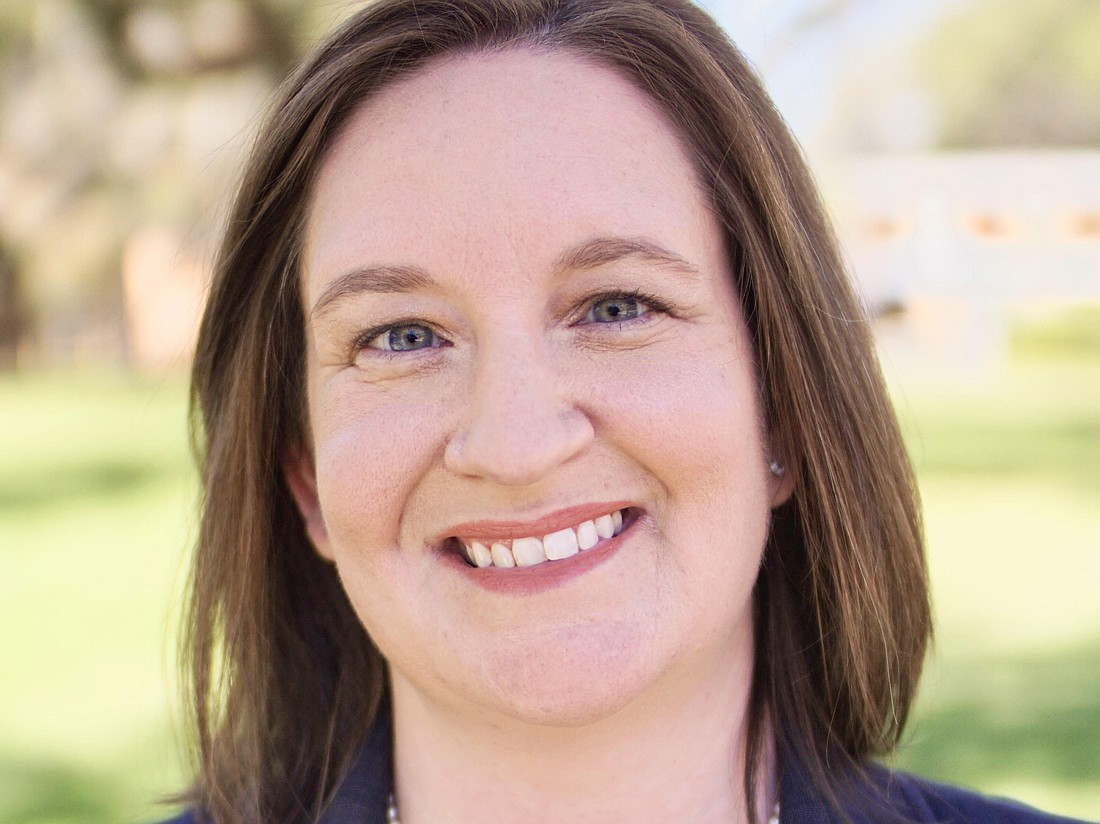
Each new year we reflect on our progress and set resolutions with the best of intentions. However, many, if not most of those well-intentioned promises to self, may fall by the wayside by March.
Not at the Jacksonville University College of Law.
For a year-and-a half, our law school has delivered high quality legal education, offering a rigorous, distinctive curriculum that emphasizes excellence in the pursuit of legal knowledge, professionalism, ethics and service to others.
We are proud to report that we have achieved our highest priority goal: provisional accreditation from the ABA. This achievement recognizes the law school’s commitment to quality, academic rigor, and student success.
An important milestone, provisional accredition entitles the College of Law to “all the rights of a fully approved ABA law school.”
We are committed to continue our positive momentum and become even stronger, to rise among the ranks of the best centers of legal education, and second to none.
These ambitious goals are realistic because of the support we have as part of JU led by President Tim Cost, the extraordinary support of the city, the Northeast Florida bench and Bar, the business and civic communities and the talent and effort of our students, staff and faculty.
Among our high-reaching resolutions which we are determined to meet this year are acquiring provisional accreditation from the American Bar Association at the earliest possible date, moving into our permanent Downtown home at 121 W. Forsyth St. and being even more visible in returning the investment with interest that the city and people of Jacksonville have made in our success.
A resolution of our law faculty and staff is to continuously, intensively examine and develop initiatives that advance our mission of providing quality legal education amidst the ever-changing horizons of the future of law practice and legal education.
As a new law school, we enjoy the advantage of being able to adopt the best practices of delivering the fundamentals of what students need to know to be effective and model lawyers, pass the Florida Bar examination and successfully begin worthwhile careers upon graduation.
In an era of rapid technological advancement, globalization and a heightened focus on social justice, encumbered with intense disagreements and declining respect for many institutions of democracy, law schools must navigate these shifts to prepare their students effectively.
This includes not only equipping them for a job and the skills to solve today’s challenges, but also imbuing them with the critical thinking and adaptive skills to qualify for tomorrow’s jobs and tackle future issues, including ones that do not yet exist.
Because we are new, we are nimble in innovating to meet these needs and to introduce, monitor and evolve data-based improvements.
Integrating AI into the curriculum
No list would be complete for a forward-looking law school without a plan for developing our understanding of the use and impact of artificial intelligence.
The developments in this technology have been fast moving, raising questions like: How will we use it? How should we regulate it? How will it change the practice of law? And, of course, how should we teach it?
We will engage with and convene leaders in this field to keep abreast of the myriad issues lawyers, policymakers and the public are addressing.
In addition, an openness and understanding of the significance of technological competency will be a factor considered in faculty and staff hiring as we continue to build our school to match a growing student body.
Teaching how to succeed and serve
Among the many skills required of legal professionals, law students are increasingly expected to understand the business of law, including legal marketing.
Our students learn marketing skills appropriate for lawyers from the first days of orientation. When they stand to introduce themselves, they are modeling the dean’s behavior and the professional courtesy of practitioners.
When they network with professionals at bench and Bar events, they are learning how to develop business relationships.
Beyond building a personal brand, it is imperative for law schools to teach students how to understand and engage clients, showcase their expertise appropriately and honestly and leverage media to compete in a legal market, support a cause or mobilize support for their client.
Understanding the essentials of legal communications empowers students to be effective advocates, but also to establish and grow a law career, firm or cause.
We are expanding our professional development programming and curriculum offerings to enhance traditional legal education with marketing and client engagement skills to foster an entrepreneurial spirit and empower our graduates to shape their own careers.
Navigating cross-cultural contexts
Law schools recognize the increasing importance of cross-cultural competency as legal professionals navigate an array of cultural contexts to effectively serve clients and promote justice.
Understanding diverse perspectives and systemic inequalities is crucial for fostering empathy, cultural competency, an inclusive approach to legal practice and delivering quality, affordable legal services to the public, including the less advantaged.
Law schools are developing a variety of learning opportunities for students to better understand and analyze legal issues and communication strategies within different cultural frameworks.
This semester, some of our second-year students are taking a course focused on the complexities of cross-cultural interactions.
We resolve to further intertwine our curriculum with a commitment to diversity, equity, inclusion and belonging to prepare our students to create more just and equitable systems and address the complex, real-world challenges they will encounter in their legal careers.
New Year’s resolutions are meant to provide an opportunity to reflect and a sense of purpose.
Our commitment is to enhance understanding and abilities in the legal profession – be it technological proficiency, business acumen or cultural competency.
These commitments represent both our short- and long-term goals to prepare future lawyers for today’s challenges and tomorrow’s needs and opportunities.
We recognize that adaptation is an essential, rather than a luxury, and welcome your input on how to best meet our goals for this year and into the future.